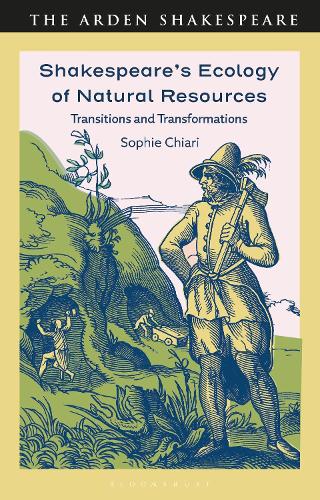
Shakespeares Ecology of Natural Resources: Transitions and Transformations
(Hardback)
Publishing Details
Shakespeares Ecology of Natural Resources: Transitions and Transformations
By (Author) Sophie Chiari
Bloomsbury Publishing PLC
The Arden Shakespeare
11th December 2025
United Kingdom
Classifications
Professional and Scholarly
Non Fiction
Narrative theme: environmental issues / the natural world
Physical Properties
Hardback
256
Width 138mm, Height 216mm
Description
Sophie Chiari analyses how Shakespeares plays and poems present the transformation of the early modern natural world through environmental shifts and ecological transformation.
Using a range of examples from the Sonnets, Loves Labours Lost, The Tempest, Hamlet and Henry V, Chiari's ecopoetic study of dramatic language explores Shakespeares response to the rise of extractive exploitation in Elizabethan and Jacobean England. Chiari expands our understanding of the environment in Shakespeare beyond the so-called green comedies by charting the transition from a pre-capitalist world towards a commodity-based society ruined by the enclosure of the commons. Using examples of water systems, sandscapes, soil and frost alongside the production of glass and salt in Shakespeare, these materials which are currently underrepresented in Shakespearean ecocriticism signal a commitment to expanding the material turn in Shakespeare studies. Far from being limited to the present era, this book argues that cultural hegemony and the exploitation of soil, water and ice were increasingly linked in the early modern era, an age of conquest and massive human depredation. By interweaving ecohistoricism, ecopoetics and material studies Shakespeares Ecology of Natural Resources shows how an eco-minded approach, focused on the interweaving of trade, territory and extractivism reveals new layers of meaning in Shakespearean poetics and drama.
Author Bio
Sophie Chiari is Professor of Early Modern English Literature at Universit Clermont Auvergne, France, where she is also the Director of the research unit Maison des Sciences de lHomme.
